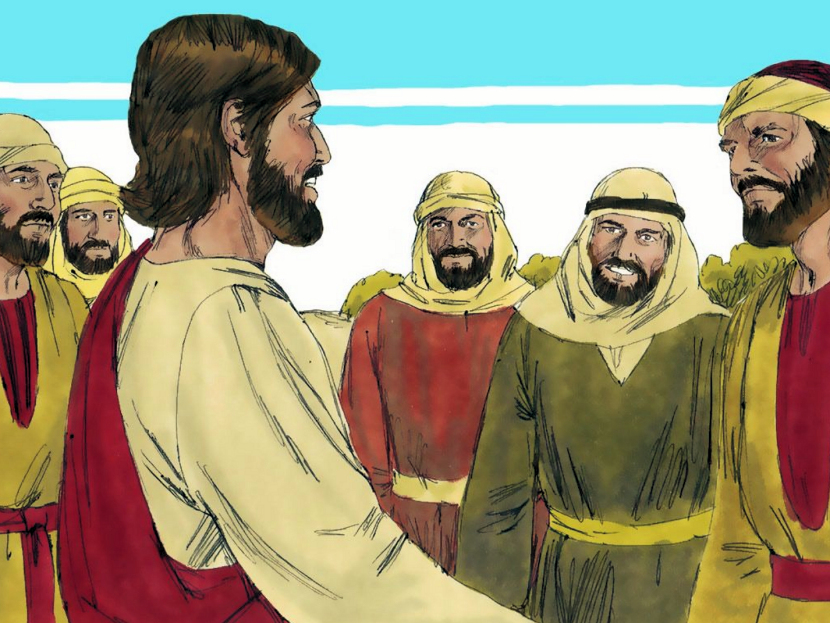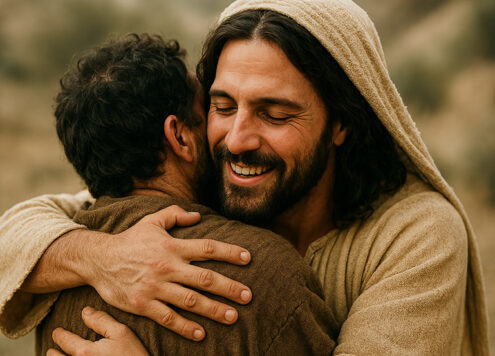There are many commandments or laws in the Old Testament. The Pharisees and Scribes got bogged down, figuring out which was the most important.
But, there are laws, and laws. There was once a law in Iowa against women wearing corsets, and it was the official job of the corset inspector to go around poking women in the ribs to make sure nobody was wearing one.
It was also a law in England (it still may be on the books) prohibiting an Irishman from sporting a mustache like an Englishman. The reason? It was feared he might be a member of the IRA in disguise.
The problem with multiplying laws is that people get confused about what is truly important and what is only incidental.
The Jews too had many laws, 613 of them in the Old Testament. Since the demands of one law often conflicted with another, Jewish teachers tried to work out a synthesis of the essentials of the law. This helped them to know which laws should enjoy priority in cases of conflicting interests.
So, when a Scribe asked Jesus, “which commandment in the law is the greatest?” (Matthew 22:36), he was asking for Jesus’ own synthesis of the laws in the Old Testament.
The scribe in question, it seems, was testing Jesus who answered him by stating, “the whole law and the prophets” depended on the love of God and love of neighbor which are inseparable (Matthew 22:40).
The Scribe responded positively to Jesus’s answer, saying: “you are right, teacher; for to love Him with all your soul, with all your mind, and with all your strength, and to love one’s neighbor as oneself, this is much more important than all burnt offerings and sacrifices” (Mark 12:32-33).
This positive response of the Scribe surely suggests he was experiencing conflict between love and the need to fulfill all the demands of Temple Worship. Jesus resolved his problem and that of His listeners by assuring them that love of God and neighbor comes before the need for ritual observances.
The scribes and the Pharisees put ritual observance above love, and that was their problem. They even absolved people from the obligation of filial love so long as they willed all their wealth to the Temple (Mark 7:11-12). In this way, they became clever in the observance of trifling matters of the law to benefit themselves but deficient in what Jesus calls “the weightier matters of the law: justice and mercy and faith” (Matthew 23:23).
Many Christians still see worship of God in terms of observing minute laws and rituals. They forget that true worship begins within, with a change of heart. They go to church on Sunday to fulfill their “Sunday obligation.” They observe their “Easter duty.” But, Jesus reminds us that whatever we do in church, in our families, and at work should flow out of love for God and neighbor.
The great commandment of love of God and love of neighbor puts it all in perspective. Love is the only commandment.
As St. Augustine puts it: “love and do what you like.”
—Fr. Hugh Duffy











4 Comments
Jimmy Nambiro
We need to show love to our neighbours, where we work,people in despair like the orphans and this must be un conditionally, Just like God loved us in our sinful nature and gave His Only and only begotten son Jesus Christ.
As Christians we need to work and support God’s ministries here on earth.
I have a cup of cold water children’s foundation international a non profit I need prayers for funding.
Nancy Tupas
I love this


Maya Bohnhoff
In Luke 10, the question Jesus answers is “What must I do to have eternal life?” His answer is to obey this Law. Jesus doesn’t say “believe this,” He says “DO this”: active faith. When the scribe asks who we should do this to, Jesus tells of 2 Jews failing to obey this Greatest Command because of a purity law, while a hated Samaritan obeys, tho it means breaking w/ his own clergy. Worth pondering.
Judy Schneider
Just what is needed for these days of hate. Love God and your neighbors.